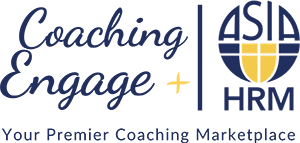Artificial Intelligence (AI) has emerged as a transformative force in Human Resources (HR), reshaping how organizations manage talent, make decisions, and foster engagement. From leveraging AI-powered empathy tools to conducting emotional analytics, AI is redefining the HR landscape. This blog explores how AI bridges data with actionable insights, enhancing HR strategies while balancing the critical human touch.
1. Enhancing Emotional Intelligence in HR
AI is revolutionizing emotional intelligence (EI) in HR by offering tools that analyze workplace emotions and behaviors. Through sentiment analysis in HR, AI identifies patterns in communication, enabling HR professionals to address challenges like disengagement or workplace conflict.
Proven Method: Emotional AI tools like Cogito or Affectiva use real-time analysis to improve employee well-being with AI. For example, these tools can detect stress during virtual sessions and provide tailored recommendations for intervention.
Practical Tip: Integrate predictive emotional analysis into remote coaching strategies to address employees’ needs proactively.
2. AI in Employee Engagement and Productivity
AI plays a pivotal role in driving employee engagement by offering personalized experiences. Tools powered by AI and workplace emotions help HR leaders understand what motivates employees, fostering higher productivity.
Real-Life Example: A multinational company used AI-driven platforms to analyze engagement surveys, identifying areas for improvement like flexible working conditions. This insight led to a 30% increase in overall satisfaction.
Practical Tip: Combine AI-powered empathy tools with coaching techniques to create engagement plans that align with individual and organizational goals.
3. AI for HR Decision-Making
Making strategic decisions in HR often involves complex data analysis. AI simplifies this by processing vast amounts of data, providing data-driven emotional insights for decisions related to hiring, retention, and career development.
Proven Method: Platforms like Workday or SAP SuccessFactors use AI to track employee performance and recommend tailored career paths. This not only enhances coaching productivity but also improves retention rates.
Practical Tip: Use AI for conflict resolution in HR by analyzing team dynamics and recommending mediation strategies.
4. Balancing AI and the Human Touch
While AI offers significant efficiency, maintaining the human element in HR is essential. Tools that enhance emotional intelligence leadership ensure that AI complements, rather than replaces, human judgment.
Real-Life Example: A tech company implemented an AI tool to handle repetitive tasks like scheduling. This allowed HR teams to focus on personalized emotional intelligence training for HR, resulting in stronger manager-employee relationships.
Practical Tip: Use AI-powered empathy tools to support but not replace human-led coaching and mentoring initiatives.
5. AI in Digital Coaching and Team Collaboration
The integration of AI into digital coaching has made personalized learning accessible to remote teams. AI tools support virtual sessions by tracking progress, analyzing feedback, and tailoring coaching programs to individual needs.
Example: Coaches on platforms like Coaching Engage+ use AI-driven analytics to refine their methods, improving both client engagement and outcomes.
Practical Tip: Incorporate coaching tools with AI capabilities into your practice to enhance team performance and collaboration.
6. AI’s Role in Employee Well-Being
AI tools are increasingly used to monitor and promote employee well-being with AI. Features like stress detection and wellness recommendations ensure a supportive work environment.
Proven Method: Sentiment analysis tools in chat platforms like Microsoft Teams or Slack provide real-time insights into team morale, allowing for timely interventions.
Practical Tip: Pair AI and emotional intelligence tools with remote coaching strategies to create holistic well-being plans.
7. AI and the Future of Leadership Development
Leadership coaching is being revolutionized by AI-powered tools that assess potential and provide personalized growth plans. By using emotion-driven AI systems, organizations can identify emerging leaders and equip them with skills for success.
Example: A retail company used AI to analyze manager performance and tailor leadership training programs. This resulted in a 20% improvement in team effectiveness within six months.
Practical Tip: Leverage AI to conduct predictive emotional analysis, identifying leaders who thrive under specific challenges.
8. Transforming HR Technology Trends
From coaching marketplaces to advanced analytics platforms, HR technology is evolving rapidly. These tools enable organizations to stay ahead of trends while improving team collaboration and productivity.
Proven Method: AI-driven marketplaces like Coaching Engage+ connect HR leaders with expert coaches, streamlining recruitment and development processes.
Practical Tip: Regularly evaluate and adopt HR technology trends to align with your organization’s evolving needs.
Conclusion
AI’s role in strategic HR management extends far beyond automation—it transforms how HR leaders connect with employees, foster engagement, and make data-driven decisions. By combining AI for HR decision-making with proven coaching practices, organizations can achieve a balance of efficiency and empathy.
Explore platforms like Coaching Engage+ to unlock the full potential of AI-driven HR strategies.

